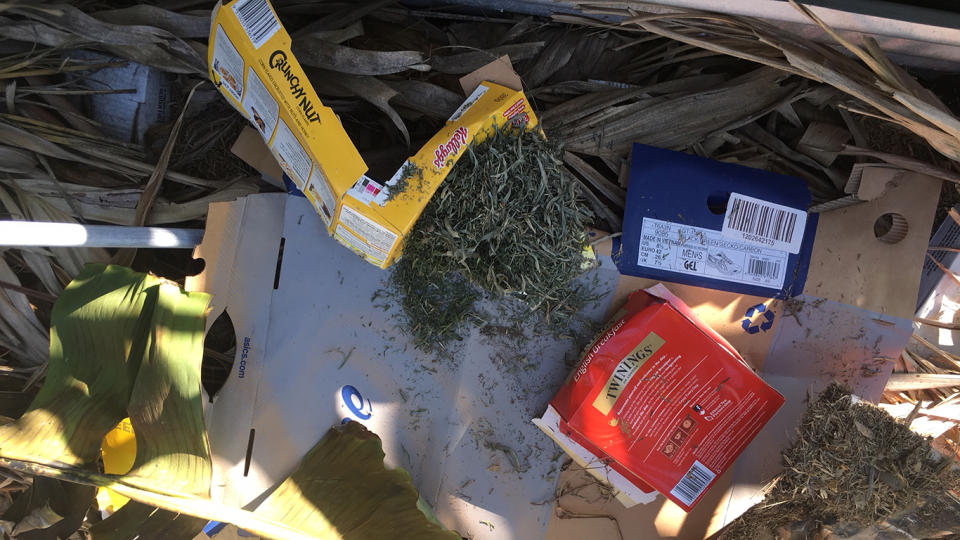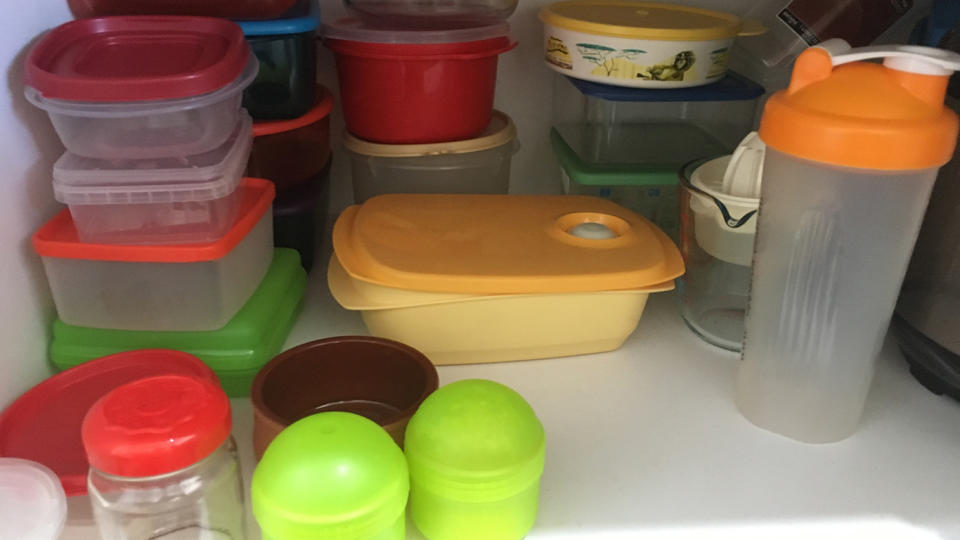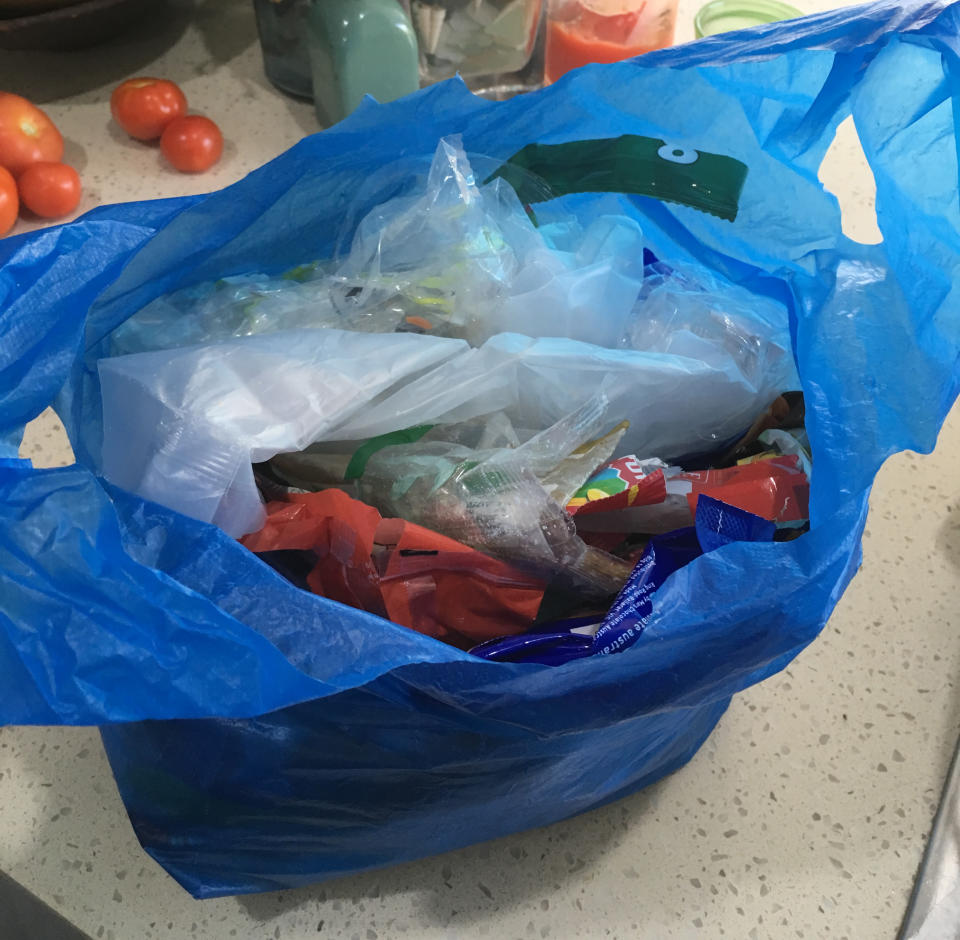How mum reduced family's waste to just one bag a week
Darwin-based mum of two Rachael Lovett has done the seemingly impossible – she’s managed to get her family of four’s household waste down to just one bag a week.
But she’s no fanatical greenie – she say’s it’s just been a matter of simple behaviour changes that are easy for anyone to do.
Sound impossible? Not at all, she says.
“It’s been a process over time,” she told Yahoo7. “The more knowledge I get, the more educated I am, the better decisions I can make.

“A house is a controlled environment, you can control the input and the output, you just have to modify your behaviours a bit, make a few little tweaks, and the difference can be huge.”
How it all started
“Since my early 20s, I always took my own bags to the shops, well before it was even trendy,” Rachael said.
“I’ve been doing that for over 20 years. I grew up on the beach and I just hated seeing plastic bags on the beach or in the water.
“It’s become harder and harder to avoid; plastic is just everywhere, and every bit of plastic that’s ever been made is still circulating somewhere on the planet.
“With my family, we started off with the usual thing, separating the recycling from the non-recycling, and it grew from there.”
How does she do it?
Food scraps go to the chickens: “We’ve always had chickens, so that’s a great way to get rid of the food scraps.
“I understand that not everyone can have chooks in the backyard, but you can also freeze food scraps and give them to someone else.”


Cash for cans: “We take all our cans and bottles to the recycling depot where you get 10 cents back per can.”
Grow a veggie patch: “Over the wet season, all our cardboard goes down into the veggie patch, layered with soil, green mulch, grass clippings, then manure on top,” Rachael said.
“In the wet season we put a tarp over the top and the tarp covers it and it breaks down into mulch during the season. Newspapers, brochures, they all go in too.”
Coles and Woolies recycle soft plastics: “They have now big bins where you can put soft plastic waste.
“I keep a bag under the sink, put all the soft plastics in there, and take that to the supermarket for recycling.
“That’s mainly what my rubbish was before, soft plastics, so that’s a great new thing.”

Reusable Tupperware containers: “The kids don’t go off to school with their lunch in plastic wrappers. Everything goes into a container, it’s brought home, washed and used again.”
Old school soda streams: “We drink a lot of mineral water so we were buying a lot of plastic bottles.
“We bought a Soda Stream for about $100 and use it for mineral water, and haven’t bought a plastic bottle of mineral water since. So over time, that’s been a great investment.”

Avoid buying packaged foods: “I try not to buy those trays of meat in the big plastic trays.
“I’ll go to the butcher, buy meat, put it in a bag, and rinse the bag out and put it in with the soft plastic rubbish.
“Also, go to fruit and veg markets and take things home in a drawstring bag or reusable mesh produce bag.”
Getting the kids on board
“My kids are 11 and 13, two boys. If they’ve been a bit careless, I’ll call them back and say, ‘what’s wrong with this picture?’
“I am slowly training them, but hopefully as they become adults it will be like second nature to them,” Rachael said.

“Things are changing all the time as people become more aware. I was even at the pub the other night and saw a ‘no straw no more’ sign.”
How to get started on the recycling journey
“Just start with one thing, and allow that to become a habit, to the point where it’s second nature,” the Darwin mum said.
“And once you’ve done that, add another thing in, and just gradually build up over time.
“I don’t understand when people know that not recycling is bad for the environment, but they still continue to do it. I find it bizarre.
“The more you find out, the more you realise the importance of it, and the more you make it a priority.”



